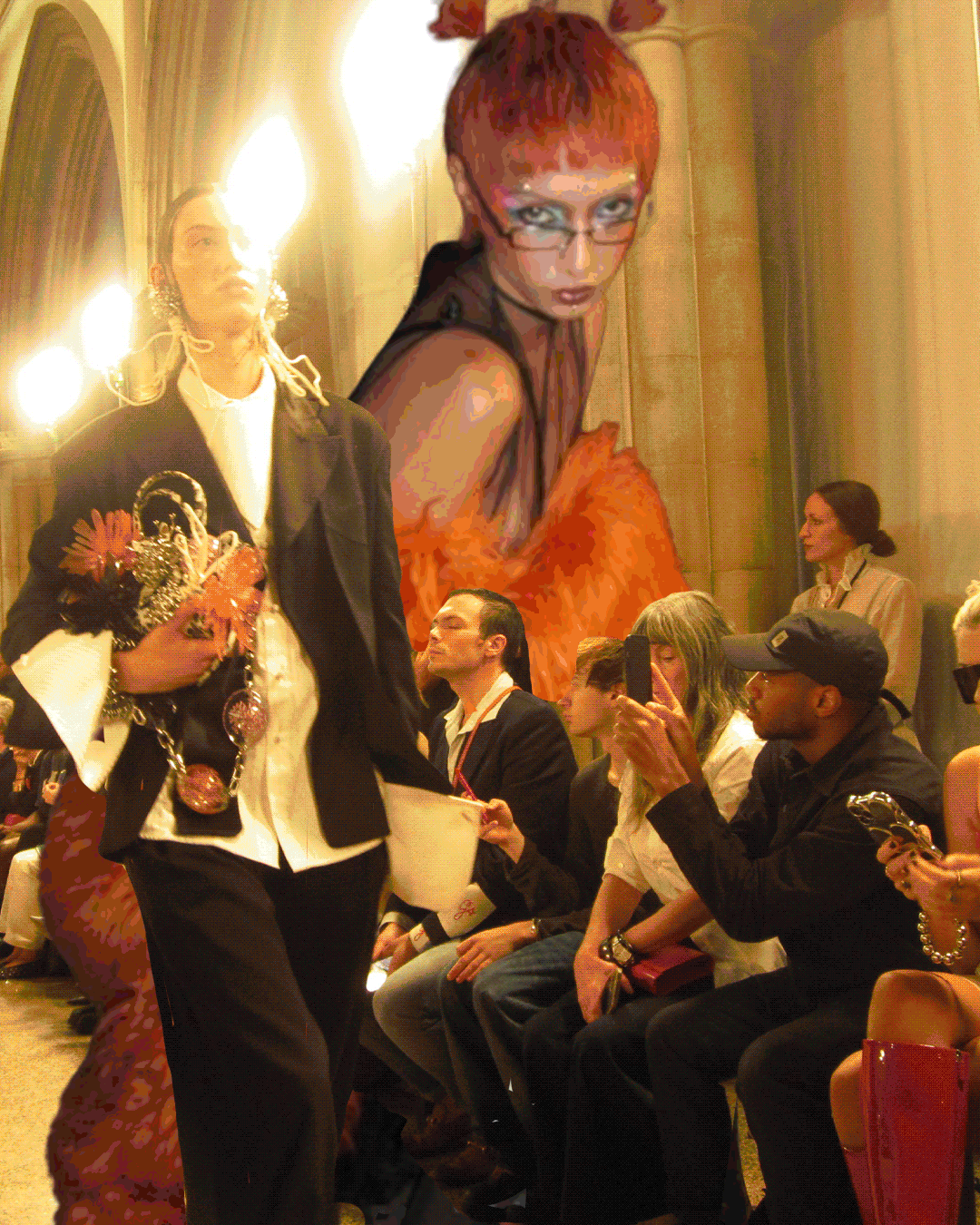Oddly, opening for Tommy Chong’s art show goes according to script
- Share via
There was something suspiciously rehearsed about the Tommy Chong art show at Ghettogloss, a new Silver Lake gallery, and it wasn’t simply the fact that nearly every piece could double as a bong. Even the tattooed locals appeared well-cast.
Actor Michael Perrick stood in the center of the low-ceilinged gallery amid a modest crowd of neon-haired guests, studying what appeared to be a glob of melted glass water pipes.
“It’s the metaphor that you smoke out of these to get melted,” said the bald young man who boasted of 34 piercings, 26 of which “are visible.” His friend, actor Doug Savercool, noted, “It reminds me of my days at the University of Oregon.”
Soon, the artist appeared, followed closely by a cameraman, a boom mike and two hovering producers, filming (what else?) a pilot for “The Tommy Chong Show,” a spoof of the ubiquitous unscripted TV format.
The Thursday night opening marked Chong’s first art exhibit after years of working at home. Gallery owner Fiora (she goes by only one name) bristled at the suggestion that Chong staged the exhibit. “This is a legitimate art opening,” she said later. “Having the circus here is part of Tommy Chong.”
In the ‘70s and ‘80s, Chong performed as half of the marijuana-obsessed Cheech and Chong comedy team, and more recently he played hippie doper Leo on “That ‘70s Show.”
His exhibit, on display through January, features dozens of hand-carved wooden pipes, colorful water pipes (courtesy of Chong Glass, the actor’s factory in Gardena), photographs of graffiti art and sandy beaches, and a series of wooden sculptures.
A “habitat” installation in one corner of the room included more water pipes, a hand-painted guitar, a refrigerator with a sign asking “Is America going to pot?” and a painting in which a younger Chong is transforming into a giant koi as his former partner Cheech Marin stands over him.
As lyrics by the 1970s funk band Parliament filled the room (“Put a glide in your stride, a dip in your hip and come on up to the Mothership!”), Chong seemed to enjoy resurrecting elements of his memorable character.
When asked to explain the concept for his artwork, he said, “That’s the trouble with potheads. We have a short attention span.” Then he translated the “alien messages” in the graffiti he had photographed. “They want peace and love and prosperity,” he said.
Gina Piccalo
*
Three voices of justice
In a darkened ballroom where flickering white tapers created a vigil-like ambience, Human Rights Watch recognized three people for their commitment to justice: Meena Seshu of India, an HIV/AIDs activist who works to stem the epidemic in Maharashtra state; Souleymane Guengueng of Chad, who has sought to bring former Chadian dictator Hissene Habre to justice; and Sanar Yurdatapan of Turkey, an outspoken opponent of his country’s limits on freedom of expression.
“In these very challenging times, it is important for us to reaffirm our belief that every human being deserves a life without fear of terror or persecution,” Sid Sheinberg, co-chairman of Human Rights’ California Committee South, told guests at the Nov. 19 “Voices of Justice” dinner in the Regent Beverly Wilshire Hotel. The honorees “have spoken out and acted boldly for victims of human rights abuse in their countries.”
After receiving awards from celebrity presenters who included Samuel L. Jackson, Julia Ormand, Ben Stiller and Noah Wyle -- the honorees spoke of the crises in their countries.
“What we face in India today is a growing wave of violence against people who are affected by HIV/AIDS,” Seeshu said. “The violence of stigma, the violence of a judgmental attitude.”
Said Yurdatapan: “In my country, you can be persecuted for any number of ridiculous things. If you criticize the army ... you will be tried in military court. If you criticize the ban on head scarves or sing a song in Kurdish, it will cause you a lot of trouble. Republishing a banned article may send you to prison.”
And Guengueng -- who had been imprisoned for his activism -- told the crowd, “Worst of all was the mental torture. We were forbidden to pray to our God. And every night, the political police took away prisoners who never returned.” Eventually, he was released, and with the help of Human Rights Watch, built the case against Habre.
“Justice -- free and fair and uncorrupted -- is possible,” he said.
-- Ann Conway
More to Read
The biggest entertainment stories
Get our big stories about Hollywood, film, television, music, arts, culture and more right in your inbox as soon as they publish.
You may occasionally receive promotional content from the Los Angeles Times.










